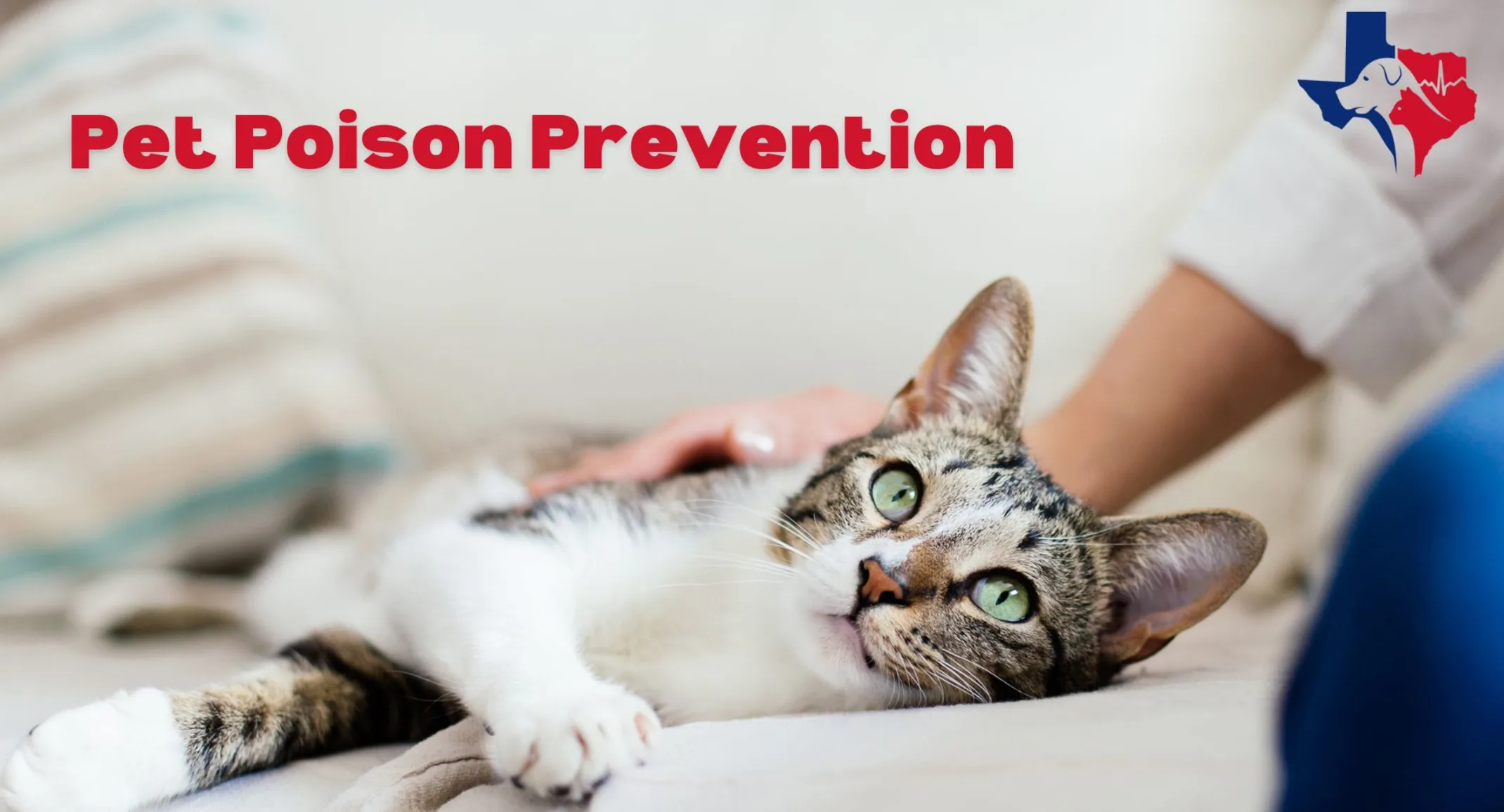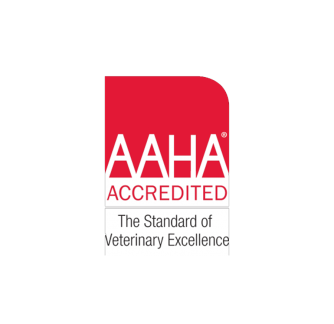Pet Poison Prevention
General

March marks Pet Poison Prevention Month, an important reminder for all pet owners to be vigilant about the potential toxins and hazards that can harm our beloved animals. Do you know we see an average of 5 poison ingestion cases a month? At Emergency Pet Care of Texas, we understand the importance of keeping your pets safe, and we want to help you prevent potentially life-threatening poisoning incidents.
We’ve outlined some of the most common pet poisons and steps you can take to prevent exposure, as well as what to do if you suspect your pet has been poisoned.
Common Pet Poisons
Human Foods Many common foods that humans enjoy can be dangerous, even deadly, to pets. Some examples include:
◦ Chocolate – Contains theobromine, which can cause vomiting, diarrhea, seizures, and even death.
◦ Grapes and Raisins – These can lead to kidney failure in dogs.
◦ Xylitol – This artificial sweetener, often found in gum, baked goods, and sugar-free products, can cause hypoglycemia and liver failure in dogs.
◦ Onions and Garlic – Can cause gastrointestinal upset and red blood cell damage.
2. Medications
Human medications like pain relievers, antidepressants, and cold medications can be extremely toxic to pets, even in small amounts. Always store medications securely and keep them out of your pet's reach.
3. Household Cleaners
Many common cleaning products, including bleach, ammonia, and disinfectants, contain chemicals that can irritate or damage your pet’s gastrointestinal system, liver, and kidneys if ingested or inhaled.
4. Plants Some common household plants are toxic to pets. These include:
◦ Lilies (toxic to cats)
◦ Oleander (toxic to dogs)
◦ Sago palms (toxic to both dogs and cats)
5. Pesticides and Rodenticides
These substances are designed to kill pests but can also be fatal to pets. Ant and cockroach bait, rat poison, and even garden pesticides can be highly toxic if ingested.
How to Prevent Poisoning
Keep harmful substances out of reach: Store human foods, medications, cleaning supplies, and chemicals in secure cabinets. Have a curious pet? Use childproof locks if necessary.
Be mindful of plants: If you have plants in your home or yard, research whether they are toxic to pets. Consider removing any dangerous plants or placing them out of reach.
Educate your family: Ensure everyone in your household knows what your pet can and cannot have. This includes reminding children to never feed pets table scraps or leave harmful substances around.
Secure trash cans: Pets are often tempted to scavenge from trash cans. Use pet-proof lids and keep the trash out of reach.
Know the signs of poisoning: Symptoms of poisoning can vary depending on the substance but commonly include vomiting, diarrhea, lethargy, drooling, or seizures. If you suspect your pet has ingested something toxic, seek emergency care immediately.
What to Do in Case of Suspected Poisoning
If your pet has ingested something harmful, don’t wait for symptoms to appear.
Contact Emergency Pet Care of Texas right away or call your local animal poison control hotline. Time is critical when it comes to poisoning, and the quicker you act, the better the chances of a positive outcome. Our emergency veterinary team is available 24/7 to provide life-saving treatment in these situations. We have the expertise and equipment necessary to handle various poisoning emergencies, from inducing vomiting to administering antidotes or performing supportive care.
This Pet Poison Prevention Month, we encourage all pet owners to take proactive steps to protect their furry family members from accidental poisoning. By being aware of common toxins, keeping harmful substances out of reach, and staying vigilant, you can help ensure your pet's safety.
If you ever have concerns about a potential poisoning or if your pet shows signs of distress, don’t hesitate to reach out to Emergency Pet Care of Texas. We're here to help, no matter the time of day or night. Your pet’s health and safety are our top priority!

